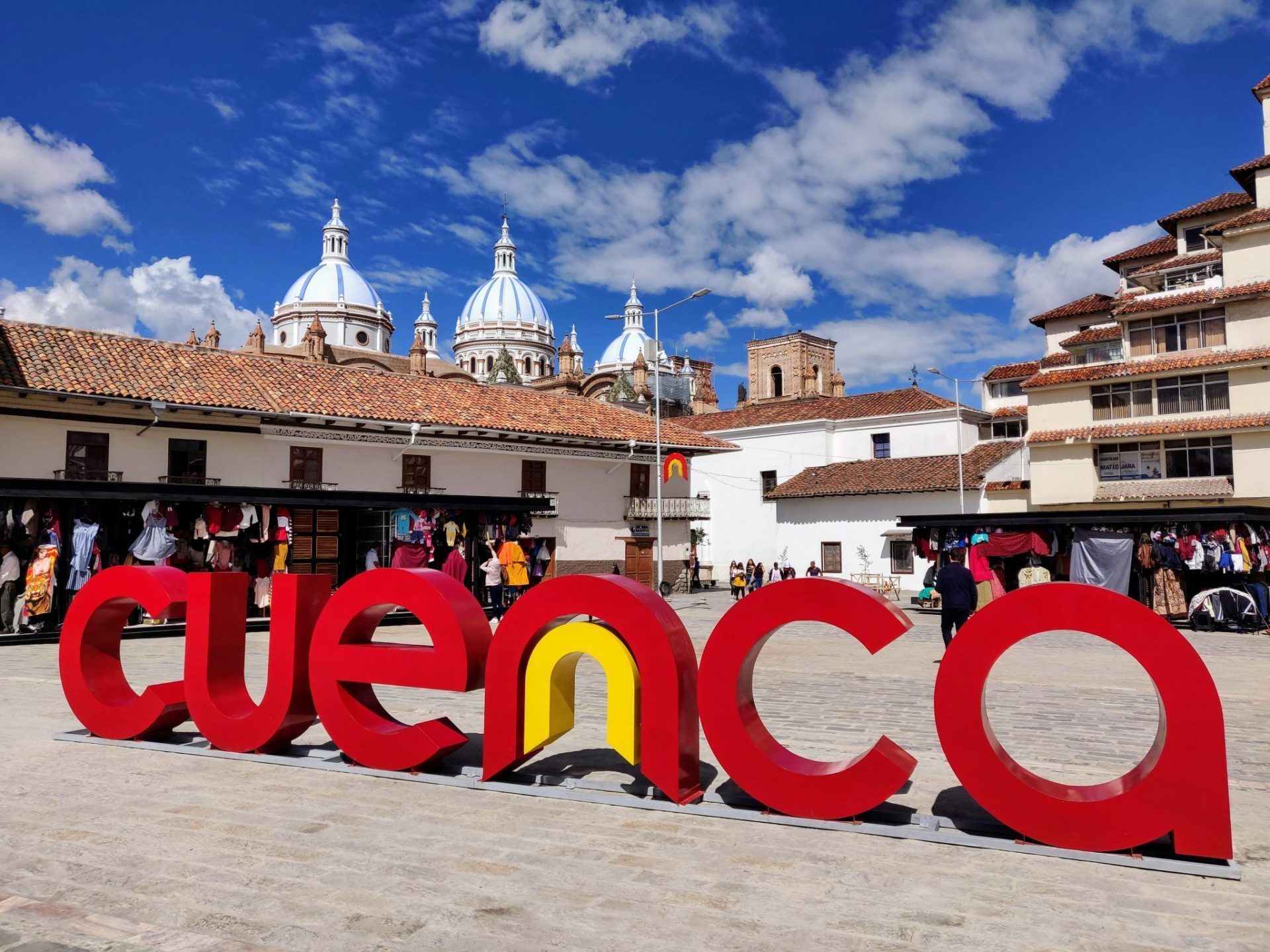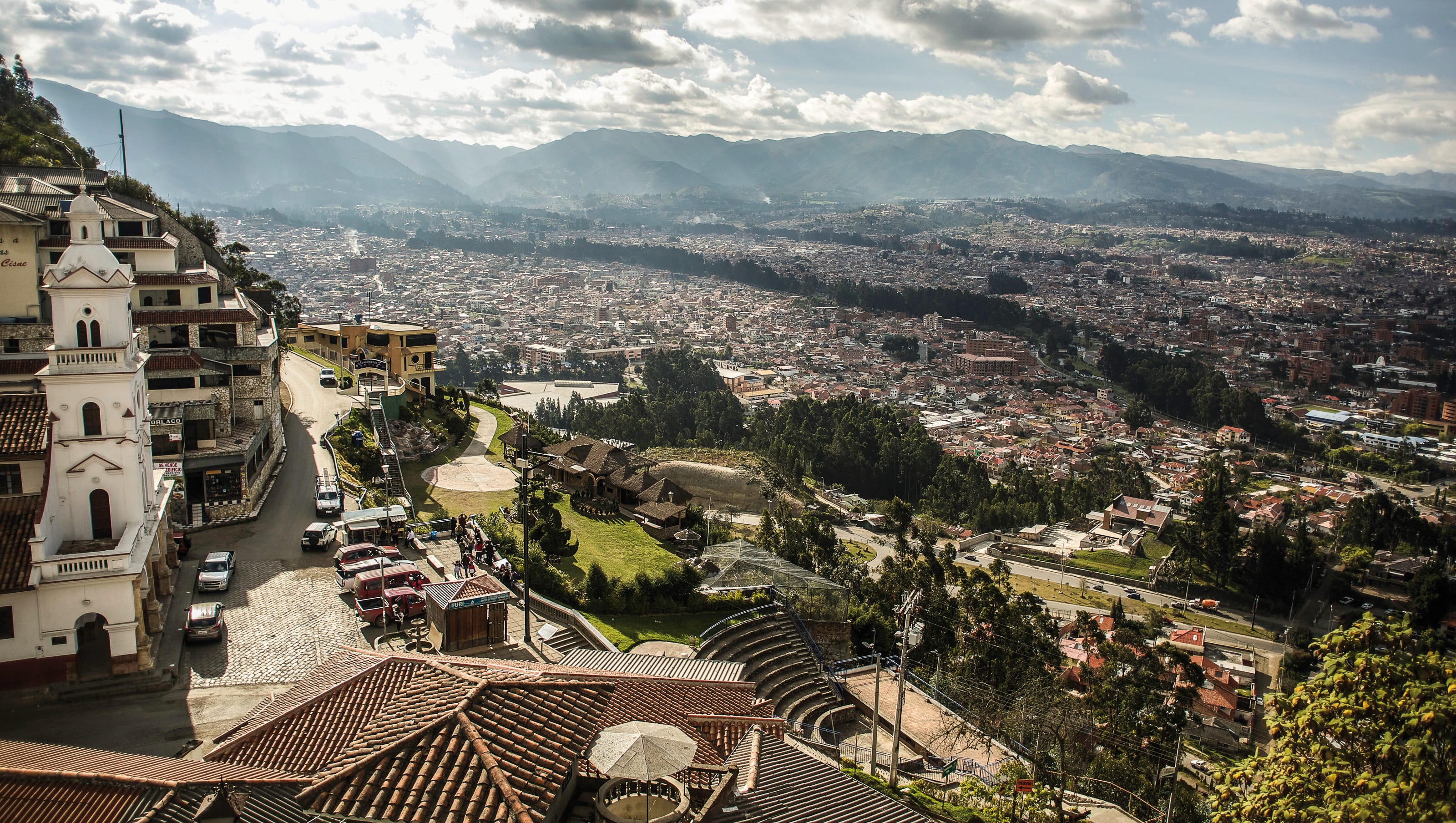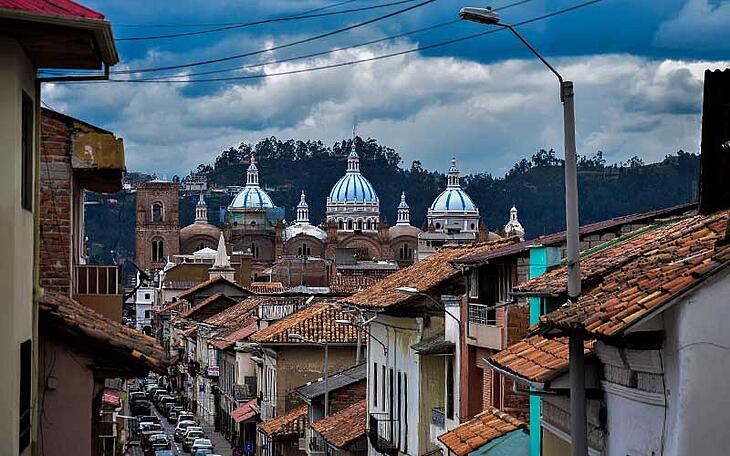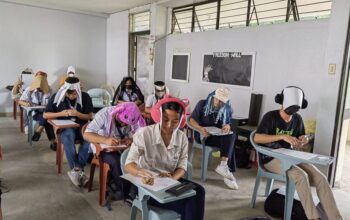This Ecuadorean city in the Andes has perfect weather – and you can retire there for as little as $1,500 a month–
‘If the place you live in doesn’t delight and amaze you every day, you’re doing it wrong.’
The following written content by Silvia Ascarelli


Bill and Dean Keyes and Chase and Saralee Squires separately say they have found the same retirement spot with perfect weather – temperatures in the upper 60s and low 70s year-round during the day and in the upper 40s at night during the winter (in this case, August and September).
Their dream spot is Cuenca, Ecuador, a Unesco World Heritage site. Although its elevation is around 8,500 feet above sea level, you’ll find palm trees and parrots in the country’s third-largest city because it’s only about 200 miles south of the equator.

“If the place you live in doesn’t delight and amaze you every day, you’re doing it wrong. And that’s how I feel about Cuenca,” says Saralee Squires, 61 who retired after working in advertising and later in benefits management.
The Squireses were still in their 50s when they left downtown Denver after a search for their international retirement spot that included Costa Rica, Spain, Panama, Belize and Colombia as well as Ecuador.
They settled on Cuenca, where they say they spend about $3,000 a month but add that it’s possible to live there on about half that – a figure the Keyeses agree with. “We don’t spare ourselves anything, and we pay for convenience,” said Chase Squires, 56, who had a career in reporting and, later, marketing.
The Keyeses, meanwhile, moved to Cuenca from Tucson a dozen years ago, leaving daughters and grandchildren in the U.S. They estimate they spend about $2,000 a month.
“Our cost of living is probably less than half of what it would be in the U.S.,” says Bill Keyes, a 81-year-old retired civil engineer.

Adds his wife, Dean, a 75-year-old retired schoolteacher and community banker: “We will never go back to the States. We will die here, and they can throw my ashes into the Galapagos.”
The two couples, whose lives don’t overlap among Cuenca’s estimated 7,000-10,000 expats, discussed their experiences in separate interviews. Both pairs emphasized that to be happy, those considering a move must be willing to adapt to Ecuador’s ways of doing things.
“The best piece of advice I got is anytime you get frustrated and think they’re not doing it right, repeat these three words: ‘This is Ecuador,’” says Chase Squires. “Nobody cares how you did it up north. They’re not changing for you.”
Those curious about retirement life in this South American country, which is about the size of Colorado, should test it out, whether on a short vacation or for up to three months (no visa required), they say. Chase and Saralee Squires held on to their Denver condo for two years as a safety net, just in case.
Don’t overlook Facebook groups for advice as you search for information about Cuenca or other spots in Ecuador; here are three popular ones.
Spanish skills aren’t a must; all four say their language skills aren’t great and point to Google Translate, used by Americans and Ecuadoreans alike to communicate with each other. Facilitators – essentially translators – can be hired for medical visits and other situations.
What’s Cuenca like?
In a word, walkable. Both couples mentioned that most Americans lose weight after moving here because people walk everywhere.
The pace of life is also much slower than in the U.S., they say.
You’ll find Netflix as well as access to American sports channels via streaming. There are big supermarkets like in the U.S. as well as smaller outdoor markets.
And yes, it’s safe to drink the water. And to walk at night. Read more from MarketWatch.





